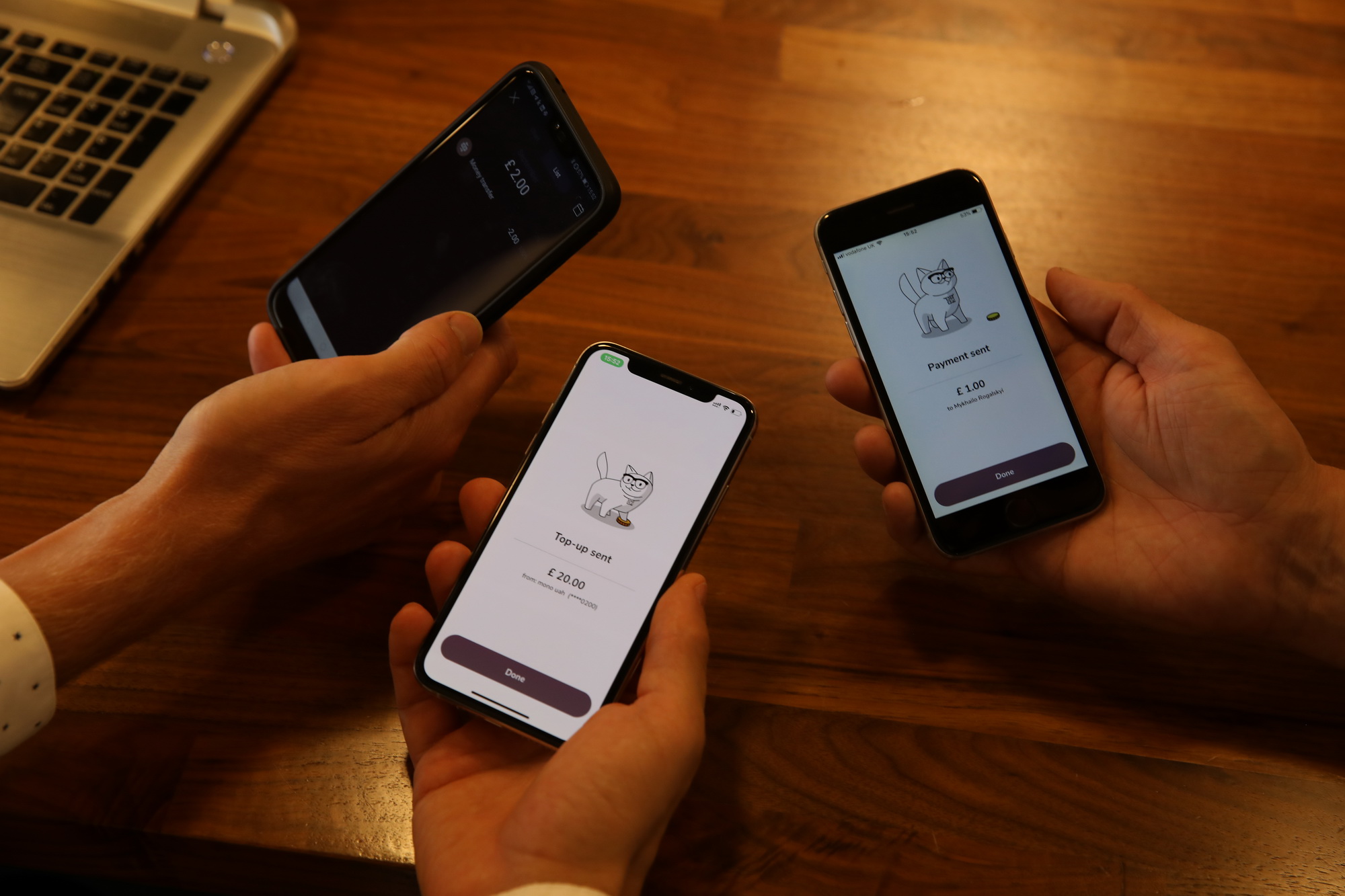Ukraine’s mobile-only bank Monobank is coming to the United Kingdom.
Two Ukrainians, who are also former top executives of the notorious PrivatBank, are banking stars in today’s Ukraine: they co-founded and now run Monobank, which has amassed over 1.5 million users in two years and is known for its cutting-edge approach to online banking.
JOIN US ON TELEGRAM
Follow our coverage of the war on the @Kyivpost_official.
In Britain, lured by a similar culture, two-hour time zone difference and convenient banking regulations, they are trying to repeat their local success, launching a mobile-only bank (otherwise known as a neobank) called Koto. Similar to Ukraine, its main offer is a credit card.
“If you have success in Britain, then it will be easier for your business to enter any other country,” Koto co-founder Misha Rogalsky told the Kyiv Post. Rogalsky is one of three executives who actually lives in London to oversee Koto’s development there.
Having moved abroad to start working on Koto a year ago, Rogalsky is getting ready for the rollout of the neobank this December.
Credits for Brits
The Ukrainians want to make Koto as similar to Monobank as possible, leaving most of the style and even their branded cat mascot untouched. But Koto and Monobank will differ in other ways, given divergences in the countries’ banking regulations.
U.K. firms can issue bank cards and offer credits without a banking license, which is forbidden in Ukraine, where Monobank uses the license of Universal Bank owned by tycoon Sergey Tigipko to operate. Tigipko was once an ally of runaway former Ukrainian President Viktor Yanukovych.
Without the need for a license — which also means the bank cannot collect deposits — Koto will switch its target audience to near-prime borrowers, people who don’t have an excellent credit history.
The near-prime market in Britain, according to the Ukrainian marketing agency Fedoriv, which has done research for Koto, is valued at $100 billion.
To get a fair piece of this market, Koto is preparing two key services: overdraft credit and installment payments.
The user experience will start with their free app. After users download it and sign up, they will receive a plastic debit card. If Koto’s users overspend, they can start using credit money, paying 25 pence a day until the balance is paid off. Using installment payments, in turn, will cost 10 pounds a month until the users pay their outstanding balances.
“10 pounds is a small sum that everybody can afford. Take credit for three months, and you know you’ll have to pay 10 pounds every month,” Rogalsky says. “You don’t need to have a degree in economics to figure it out.”
As a neobank, Koto will have challenge established British companies in that segment of the market, including Revolut, Monzo and Starling Bank — all already famous in the U.K. and highly valued. Monzo, for example, is worth $2 billion and Revolut $5–10 billion. Collectively, the banks already have over 10 million users.
But Rogalsky says they are not a problem. In fact, he stresses that these neobanks focus on debit cards with current balances as their main offer, with other features like favorable conversion rates for currency exchanges. But while offering a debit account via their hi-tech apps, these neobanks either don’t give credit or are just beginning to do so.
For Koto, however, issuing credit is the main competence — all in all, this is their key offer in Ukraine, Rogalsky says. But the Ukrainians will have to wait for Koto to hit the market to find out if they are as good as they hope they are.
Launching in December 2019, Koto’s founders hope to have 100,000 users after their first year of operations in the U.K.
“This number would mean the idea of Koto works,” Rogalsky says.
The U. S. financial services corporation Mastercard believes in the Koto idea to the extent that its British office has got in touch with Koto and invested 100,000 euros pro bono in its development. The money will go on a promo campaign that the neobank will launch as soon as it starts working.
“They will profit when our Koto grows,” Rogalsky adds.
‘Do as the Romans do’
Soon after PrivatBank’s insolvency and nationalization in December 2016, most of the bank’s management left the company.
Head of the payments business Misha Rogalskiy, first deputy chairman of the board Oleg Gorokhovskiy, tech director Dmytro Dubilet were among those who did.
Unemployed, they co-founded a consulting firm called Fintech Band to help develop retail banking services for other banks and ended up developing Monobank for the Universal Bank. In total, there were seven co-founders.
For the fintech geeks who are used to working in Ukraine’s banking sector, Britain marks a major shift.
First of all, the British market demands many documents. Every decision made at meetings must turn into paper documents to create a “trace,” Rogalsky explains, a mechanism to prevent another crisis like in 2008, when banks went bust but nobody was found guilty.
“Since then, the regulator aimed at creating a transparent decision-making process so that it’s clear who is responsible for what,” he says. For him, it’s slower but more transparent.
“We are used to doing it differently in Ukraine,” Rogalsky says. “But when in Rome, do as the Romans do, right? This is their business culture and you’ve got to get used to it.”
Apart from this, Rogalsky praises the British fintech market. Most of all he likes the abundance of tech firms that service fintech companies.
Everything that Monobank does in-house, Koto can and does outsource. One company, for example, issues cards and does the processing for Koto while another gives users’ credit history and checks their documents.
“You can make a fintech startup out of LEGO blocks in Britain, taking everything from the market piece by piece,” Rogalsky says.
But Rogalsky has another backup — a Fintech Band office in Ukraine’s southeastern Dnipro, where 200 programmers work for both Monobank and Koto. Having such an army back in Ukraine, the London team of Koto can afford to have as few as eight local staffers and a British CEO, who Rogalsky will oversee until the Ukrainians gets enough experience in the British market to obtain a permit allowing him to officially lead the company.
But whoever the CEO is now, the company can always count on the help of on its co-founders: Rogalsky in London, Kyiv-based Gorokhovsky and previously Dubilet, who left Monobank to become the Minister of the Cabinet of Ministers in September 2019.
Now Dmytro Dubilet can’t affect the business decisions in the two banks “even theoretically,” Rogalskiy adds.
All the founders of Fintech Band — and thus Monobank and Koto, too — are from Dnipro, some 500 kilometers southeast of Kyiv, where PrivatBank has its main office. For Rogalskiy, it’s a “pleasant feeling” to turn back and see how, starting in the industrial city of Dnipro, he wound up developing a competitor for Revolut and Monzo in London.
He insists, however, that for him and the Fintech Band, success in the U.K. won’t be the final stop.
“I’m still far away from the point where I’d want to be. We haven’t made a successful project in Britain yet. In other countries either,” he says. “But, of course, our previous success gives us a good boost to achieve something great eventually.”
You can also highlight the text and press Ctrl + Enter





